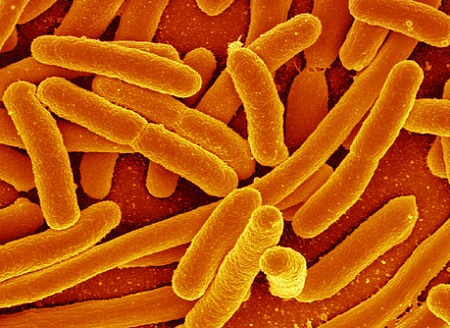Nikhil Prasad Fact checked by:Thailand Medical News Team Nov 07, 2024 1 year, 1 month, 2 weeks, 2 days, 16 hours, 41 minutes ago
Weight Loss News: Researchers at the Universidad Autónoma de Baja California-Mexico have been delving into the fascinating potential of Lactobacillus rhamnosus, a beneficial bacterium that may help counter obesity. With obesity affecting a large segment of the global population, there's an increasing need for innovative ways to tackle weight gain and associated health issues like diabetes, heart disease, and high cholesterol. This
Weight Loss News report explores how Lactobacillus rhamnosus may influence obesity-related factors through different forms, including probiotics, postbiotics, and paraprobiotics.
 Probiotic Lactobacillus Rhamnosus for Weight Control
Probiotic Lactobacillus Rhamnosus for Weight Control
The study explains that not only live Lactobacillus rhamnosus can help, but even non-living (heat-treated or component-extracted) versions seem to offer similar benefits. Such insights open doors to using this bacterium in a range of medical and dietary applications. The research team, including Dr. Gabriela López-Almada, María Esther Mejía-León, and Norma Julieta Salazar-López, found that even when these bacteria are no longer active, their beneficial effects on the body persist.
Fighting Obesity with Gut Health
Obesity is complex, influenced by many factors such as diet, genetics, and lifestyle. Gut health has been shown to play a crucial role, with certain bacteria in our intestines influencing weight gain, inflammation, and overall health. In the case of Lactobacillus rhamnosus, the study highlights how this bacterium can interact with gut cells to control fat storage, inflammation, and oxidative stress, potentially helping those struggling with weight gain.
One of the bacterium’s notable impacts is on adiposity (or body fat levels). The study shows that Lactobacillus rhamnosus can reduce fat accumulation by influencing various genes associated with fat storage and breakdown. By altering the expression of genes like PPARγ (a key player in fat storage), Lactobacillus rhamnosus can reduce the number of fat cells that mature and store fats, thus limiting overall fat storage.
Balancing Metabolism and Inflammation
Lactobacillus rhamnosus does not just influence fat storage; it also helps in balancing metabolic processes that can become disturbed in obesity. When consumed, this bacterium was shown to reduce oxidative stress - an imbalance between harmful free radicals and antioxidants that can cause cellular damage. Oxidative stress is common in people with obesity and can lead to various chronic conditions, including heart disease.
The research also uncovered that Lactobacillus rhamnosus may help control inflammation, which is a significant factor in obesity-related conditions. By reducing inflammation markers like TNF-α and IL-6, Lactobacillus rhamnosus could ease the strain that excess weight places on the body, making it a potential aid for reducing the long-term risks associated with chronic inflammation. This anti-inflammatory effect is thought to stem from the bacterium&a
mp;rsquo;s ability to boost the production of anti-inflammatory cytokines and reduce the expression of inflammatory genes.
Improving Hunger and Satiety Signals
One of the fascinating findings in the study is that Lactobacillus rhamnosus influences hormones related to hunger and satiety, such as leptin and adiponectin. By positively impacting these hormones, this bacterium could potentially help people feel fuller for longer and reduce excessive eating. Leptin, which signals to the brain that the body has enough energy stored, can be disrupted in people with obesity, leading to overeating. Lactobacillus rhamnosus appears to restore leptin sensitivity, making the brain more responsive to the "fullness" signal and possibly preventing overeating.
Postbiotics: A New Frontier in Obesity Treatment
The study also focused on postbiotics, which are beneficial substances produced by probiotics like Lactobacillus rhamnosus. Unlike live probiotics, postbiotics don't require the bacteria to be alive to provide benefits. This finding is promising as it suggests that even in settings where keeping bacteria alive is challenging, the benefits of Lactobacillus rhamnosus can still be harnessed. Postbiotics from this bacterium may activate certain pathways in cells that help burn calories, reduce fat storage, and even boost antioxidant activity, providing a powerful tool for managing weight and improving metabolic health.
A New Chapter in Gut Health Research
The research team’s findings add to a growing body of evidence supporting the importance of gut bacteria in managing obesity. While more research is needed to determine the full effects and best delivery methods for Lactobacillus rhamnosus - be it as live bacteria, heat-treated cells, or postbiotic extracts - this research shows promise. Potential applications could range from weight management supplements to dietary products aimed at promoting gut health and reducing the burden of obesity.
The study findings were published in the peer-reviewed journal: Foods.
https://www.mdpi.com/2304-8158/13/22/3529
For the latest
Weight Loss News, keep on logging to Thailand Medical News.
Read Also:
https://www.thailandmedical.news/news/move-over-ozempic-and-wegovy-fermented-blackberries-the-new-anti-obesity-and-weight-loss-remedy
https://www.thailandmedical.news/news/west-african-plant-secamone-afzelii-emerges-as-a-promising-natural-solution-for-obesity
https://www.thailandmedical.news/news/study-finds-that-elderberry-juice-is-a-promising-ally-in-gut-health-and-obesity-management
https://www.thailandmedical.news/news/gymnema-sylvestre-and-berberine-are-effective-natural-alternatives-for-obesity-treatment
https://www.thailandmedical.news/articles/weight-loss-news
